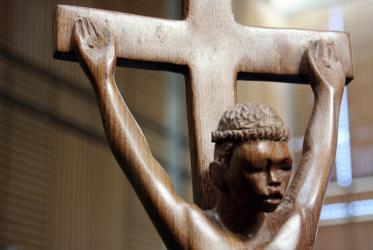Displaying 81 - 100 of 124
Tveit in South Africa: “ We know. We dare. We can.”
12 June 2016
South Sudan’s church leaders call for hope at Easter
24 March 2016
Beating the drum for peace
23 October 2015
WCC Executive Committee speaks out on migrant crises
12 June 2015









